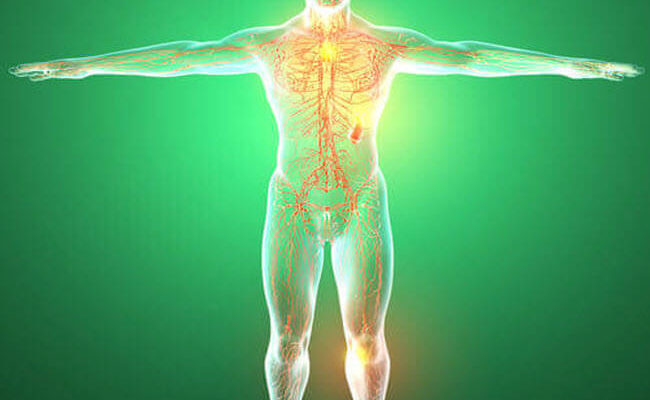
What protects us from infections: a strong lymphatic system
0
The lymphatic system performs an important drainage and cleansing function in the body, and its good condition, activity is the key to good health, immunity from infections.
Most people are not familiar with the device of the lymphatic system and pay attention to it only when the lymph nodes are greatly enlarged. Meanwhile, it is extremely important for maintaining health. Lymph is usually a clear watery structure formed from tissue fluid and absorbed by lymphatic vessels that run throughout our body and act as filter stations. Here, the body's protective reactions are coordinated.
Lymph nodes contain immune cells that control the lymphatic fluid and ensure the rapid onset of an optimal protective response to pathogens. A person has about 600 lymph nodes, which are concentrated in certain areas of the body:
- inguinal – to control the outflow of lymph from the legs and lower abdomen,
- axillary – control its movement from hands and in the chest area,
- cervical – to regulate lymph in the head area.
The lymphatic and immune systems form a single whole. With each appropriate immune response to a potential infection, the lymphatic system begins to work with increased force . This can be felt, for example, when normally invisible lymph nodes swell and become palpable or even visible.
Oropharynx: the main point of entry for pathogens.Most pathogenic microorganisms enter our body through the mouth and nose. Therefore, the body has built specific barriers around these “entrance gates”: protective immune cells are located in the tonsils, mucous membranes in the neck region and in the cervical lymph nodes. These cells “scan” all substances that enter the body and destroy them if they are recognized as pests. At first, it can be felt in the form of swelling of the mucous membranes of the nose and throat.
If this system is not strong enough to successfully fight pathogenic microorganisms, the result is often a painful inflammation (sore throat, sore throat, tonsillitis), which can also spread to the respiratory tract, causing cough, bronchitis and endangering the lungs.
A weak lymphatic system is the path to disease. Scientists believe that in people who suffer from frequent infections, the cause of such illness lies in the increased susceptibility to pathogens of weakened lymphatic organs. Including taking antibiotics weakens them.
How can you support the lymphatic system? A wholesome, varied diet with a lot of nutrients is important for a strong lymphatic system, which improves the body's defense against infections. In addition, exercise, sun and fresh air are important for a strong immune system. Light exercises in the form of swimming are ideal for strengthening the lymphatic system.
In addition, for its good condition, it is important not to be exposed to prolonged stress – this factor has a detrimental effect on many functions of the body, including lymphatic drainage and the immune system.









Leave a Reply